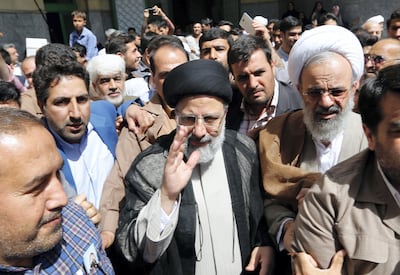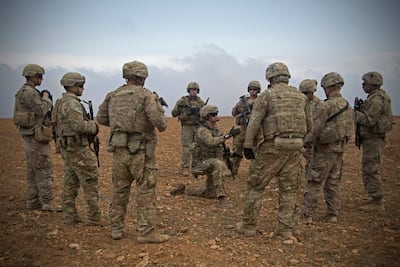The Biden administration’s botched withdrawal of American troops from Afghanistan and the resulting turmoil in that country have proved to be a setback for the ruling Democratic Party.
Just 10 months after Mr Biden’s presidential election victory over incumbent Donald Trump, Democrats are scrambling to deal will the fallout from the messy Afghanistan exit, with a little more than a year left before the midterm elections.
Mr Biden won the 2020 election by capitalising on Mr Trump’s mistakes rather than by asserting his own personality and vision. The supposedly passive traits in the president’s character have come to bite him and his party, especially with the Afghan crisis exposing a lack of critical thinking, flexibility and even political intelligence on the part of his administration.
And now, the question is whether the party, chastened by how the ongoing crisis has tarnished Mr Biden’s brand, will start to promote Vice President Kamala Harris as a viable alternative to her boss in the White House – despite her lack of foreign policy experience – much earlier than expected. This could be the case especially given the US military’s opposition to the president’s recent decisions in Afghanistan and the American media’s falling out with his administration.
Washington is negotiating directly with the Taliban about a safe exit strategy for people allied to the West. The latter is said to be waving a stick to threaten American lives in Kabul if the former refuses to unfreeze Afghan funds that the Taliban believe belong to them now. CIA chief William Burns reportedly held a secret meeting with Taliban leaders in Kabul. What will happen if they fail to reach a deal? Will the Taliban refuse to extend the August 31 deadline meant to allow for the departure of all the western allies?
The Biden administration will be aware that the death of American soldiers in Afghanistan will be a disaster for it – especially with 13 of them already killed in the ISIS terror attacks on Thursday. It would be much worse if there was to be a terror attack on US soil.
Mr Biden was keen to mark the 20-year anniversary of the 9/11 attacks next month by withdrawing the last of the US troops from Afghanistan on that day. But having given terror groups the upper hand by withdrawing too rapidly, attacks at home on the day – from the likes of Al Qaeda and ISIS – cannot be ruled out. This is aside from possible homegrown political violence that the US Department of Homeland Security has said it is preparing for.
Even as all eyes are on Afghanistan, the Washington-led nuclear negotiations with Tehran are under way. A breakthrough is not yet in sight with regard to Iran's return to the 2015 nuclear agreement. Yet, it is also true that Mr Biden has invested some of his political capital in the talks, which makes it possible for him to concede to Iranian blackmail eventually.

Tehran believes the EU leaders’ frustrations with the US's conduct in Afghanistan and the subsequent failure of the G7 summit because of Mr Biden’s intransigence will lead to increased European support for a nuclear deal and further European pressure on the Biden administration to abandon its demands for more nuclear guarantees from Tehran. As usual, the regime is confident it will be able to get the Europeans to do its bidding on the nuclear issue.
Mr Biden’s decision will not be an easy one to make, given that he may have to choose between letting the Vienna talks collapse on the one hand and yielding to Iran’s demands on the other. Either way, it could cost him some of his political capital. His problem right now is that Iranian President Ebrahim Raisi has stated he wouldn't wait too long, even hinting at escalating his country's missile, nuclear and regional activities.
Currently, Iran’s leaders are preoccupied with their subversive project in neighbouring Iraq, where they seem to have concluded that the Biden administration will eventually double down on a complete pull out. Washington has indeed announced its plan to withdraw combat troops from Iraq this year. While some American presence will be maintained, chiefly for training purposes, Iran undoubtedly senses an opportunity to increase its control over Iraqi assets and resources.

Syria's north-east, meanwhile, is militarily linked to western Iraq. This means that the Biden administration's withdrawal from Iraq could affect its decision to leave Syria or stay put. American presence in the oil-rich regions of north-eastern Syria has so far prevented the Assad regime from bringing all of Syria under its grip. But given the low cost of deployment in that country, it will be an odd decision to leave.
Not long ago, it was anathema to even think about withdrawing from Syria because of the leverage this gave Washington over Russia and Iran in that part of the region. This was so much so that Mr Trump had to backtrack on his own decision to leave Syria after the US military argued strongly against it.
An American exit from the Middle East will not serve its national security interests well. It could even undermine the Biden presidency, since withdrawal will only serve its rivals’ interests – Iran’s in Iraq, Russia’s in Syria, and China’s in both countries. It will deprive the US of many strategic advantages.


